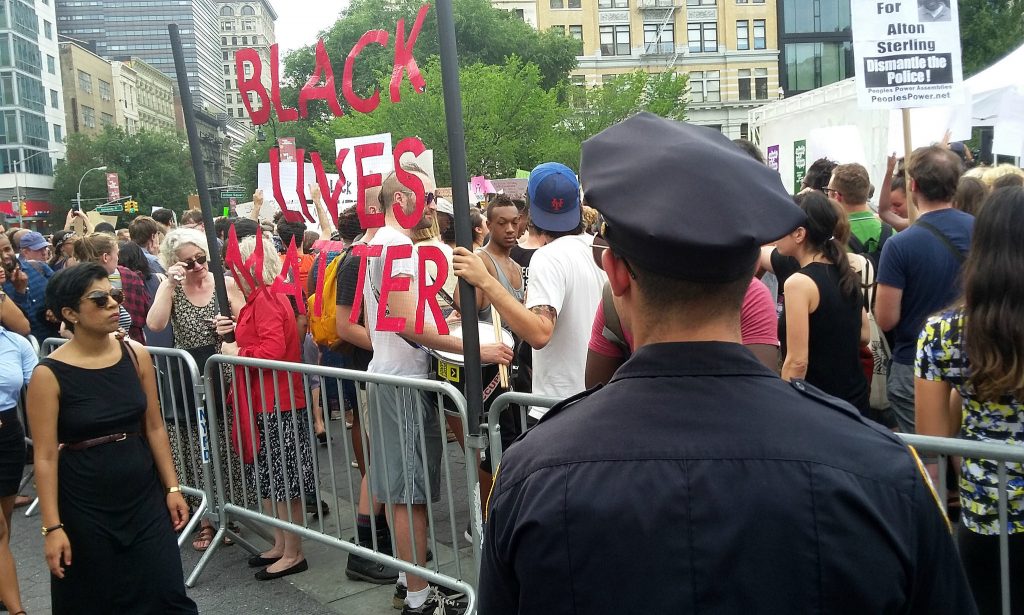
A Federal Judge in Louisiana ruled against an unnamed police officer who attempted to sue Black Lives Matter and one of its key members, DeRay Mckesson . The police officer alleged that he was hit with a “rock-like substance” in a 2016 protest in Baton Rouge. Unable to name the perpetrator, the cop offered scant evidence for his allegations. Mckesson was listed as a defendant on the suit, but the Judge found no substantial link between the officer’s claims and the BLM activist. Mckesson’s attorney, Billy Gibbens, told Reuters, “[my client] does not condone violence of any kind, and we are very sorry that the officer was injured,” adding, “The court was absolutely correct to find that DeRay is not responsible for the criminal conduct of an unidentified person.” Ultimately, the judge decided that it is in fact impossible to sue a movement.
The Movement
BLM grew out of the travesty of Trayvon Martin’s death in 2012. Martin, walking home from a relative’s house, was shot by a man, George Zimmerman, who, thanks to a Florida law protecting Zimmerman’s right to “stand his ground,” got off scot-free. Originally, the movement was primarily an online phenomenon, circulated via the hashtag, #BlackLivesMatter. Over the past few years, the movement has become a horizontally-run organization with chapters throughout the US and the world. The movement has been key in the nationwide protests against the murder of unwitting black men and women, who die mostly at the hands of police officers putatively meant to protect and serve the very people they kill.
Hashtags Can’t Be Sued
According to US District Judge Brian A. Jackson’s 24-page ruling, the unnamed officer’s reason for filing the lawsuit was as follows: being a “national unincorporated association,” BLM and one of its primary organizers, Mckesson, are subject to lawsuits. The organizer should have known, according to the officer, that “‘the physical contact[,] riot[,] and demonstration that they staged would become violent . . . and . . . that violence would result.’”
Disagreeing with the officer, Judge Jackson wrote, “‘Black Lives Matter,’ as a social movement, cannot be sued, however, in a similar way that a person cannot plausibly sue other social movements such as the Civil Rights movement, the LGBT rights movement or the Tea Party movement.”
“A hashtag,” he continued, “is not a ‘juridical person’ and therefore lacks the capacity to be sued.”
Mckesson
And in response to the officer’s claim that Mckesson directly incited the violence, the judge found little to no evidence to support this. Jackson found that Mckesson was only exercising his right to association and protest, highlighting the officer’s own claims about the protest’s peaceful commencement.
Following the ruling, Mckesson said the following to AP: “It’s clear that I did nothing wrong that day and that the police were the only violent people in the streets.” He continued, “The movement began as a call to end violence and that call remains the same today.”
The Protest
The protest in question occurred on July 9th, 2016, following the death of Alton Sterling who was shot by police officers for dubious reasons. The shooting was captured on video, which shows officers forcing Sterling to the ground before firing off several rounds. At the protest in Baton Rouge, almost 200 people were arrested, Mckesson among them.
Another lawsuit, being heard in the same court, alleges that BLM and McKesson were pivotal in the events leading up to the shooting of three police officers in Baton Rouge. Judge Jackson will decide that case as well.
